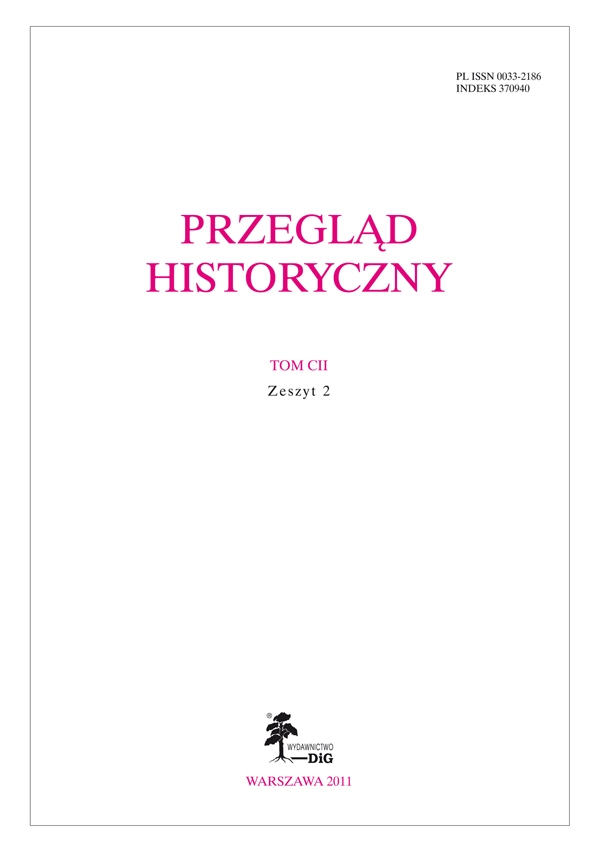Szkolnictwo zawodowe w okresie stalinowskim: „produkcja kadr” czy instytucja awansu społecznego?
Słowa kluczowe:
szkolnictwo zawodowe, stalinizm, awans społecznyAbstrakt
Professional Training Secondary Schools during the Stalinist Period: Production of Staff or Instrument of Social Advancement?
The article discusses the development and functioning of professional training secondary schools in Poland during the period 1945–1956. The author stresses that after 1945 this type of educational institutions developed most rapidly. The Communist authorities motivated this with special emphasis on material advancement and prestige enhancement of the social groups, which formerly belonged to the lowest strata, i.e. workers and peasants. This concern, deriving from communist ideology, was supposed to be supported by the idealized presentation of the life of the working class in the official propaganda films and propaganda campaigns popularizing professional training secondary schools among primary school children. The advertising materials pictured workers as financially independent individuals, who took advantage of opportunities of furthering their professional education, and who participated in the urban lifestyle.
The actual reasons for directing large numbers of the Polish youth, stemming predominantly from rural milieus, to professional training secondary schools were the needs of the country’s economy, which underwent post–war reconstruction and restructuring towards heavy industry production mining, steel production, machine construction, in accord with the communist doctrine. All this generated the demand for large numbers of low qualified workers. With the aim of rapid furnishing of an appropriately numerous ‘labour force’, the training programmes in the schools were kept at low level, which resulted in low qualifications of the graduates. Moreover, many of these schools were underequipped with teaching utensils.
The lifestyle of the graduates of these schools also had little in common with the picture forwarded by the official propaganda. Undoubtedly, the certificate of finishing such a school provided the opportunity of moving to a city, which itself was generally considered an advancement in social status among the peasantry. The appeal of the new workplace was nevertheless limited by the fact that the authorities, with disregard of individual preferences,
directed the graduates of the discussed schools to factories all around Poland. Arriving on the spot, the new workers were usually set to most burdensome duties, received low pay, had problems with holiday leaves and usually had no possibility of continuing their education. Such a situation resulted from the attitude of the authorities, who, on all levels,
treated workers as “labour force”, which in the name of fulfilment of economic goals should be exploited as intensively as possible. Whereas, the authentic way to enhance one’s social and material status led through the military, the police forces, or through becoming member of the Communist Party apparatus.

